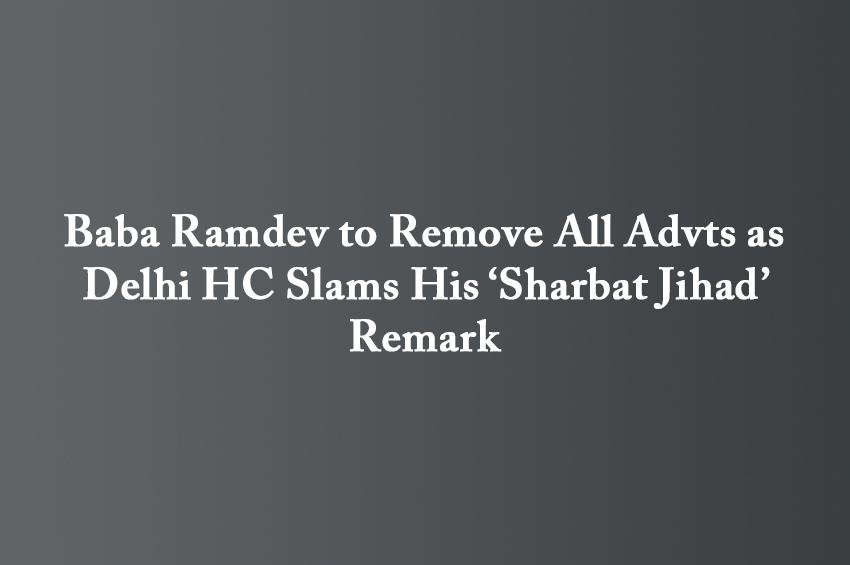Winning Bizness Desk
Mumbai. The Delhi High Court came down heavily on yoga guru Baba Ramdev over his controversial statement referring to “Sharbat Jihad” during the launch of Patanjali’s new beverage on April 3. Justice Amit Bansal said Ramdev’s remarks were not pardonable and had deeply disturbed the conscience of the court. The court warned that such religiously sensitive comments should be kept to oneself and not made public.
Court Orders Removal of Videos, Affidavit from Ramdev
Following the court's rebuke, Patanjali’s counsel Rajeev Nayar informed the bench that all videos containing the controversial statement would be removed. The court directed Ramdev to submit an affidavit confirming the removal of the content and stating that he would refrain from making such remarks in the future. The court emphasized that individuals, especially influential ones, should be cautious while speaking on religious matters in public.
Ramdev’s Remarks Spark Outrage and Legal Action
The controversy began when Ramdev, during a promotional video posted on social media platform X, alleged that a certain sharbat-manufacturing company uses its profits to build mosques and madrasas. He equated this with a new form of “Sharbat Jihad”, drawing parallels to terms like “Love Jihad” and “Vote Jihad”. These remarks prompted the manufacturer of Rooh Afza, Hamdard, to file a petition in the Delhi High Court. Senior advocate Mukul Rohatgi, appearing for Hamdard, called the remarks a direct attack based on religion and likened them to hate speech.
Hamdard Seeks Action, Cites Past Court Orders
Rohatgi argued that Ramdev’s statement went beyond healthy market competition and amounted to religious vilification. He pointed out that Ramdev, being a public figure, could market his products without disparaging others. He also reminded the court of the Supreme Court’s earlier directive in a misleading advertisement case, where Ramdev and Patanjali co-founder Balkrishna were ordered to apologize. Rohatgi insisted that the current statement was divisive and risked communal tensions.
Ramdev’s Defence and Reactions from Muslim Leaders
As the backlash grew, Ramdev released another video on April 12 defending his earlier statement, claiming people were getting unnecessarily offended. He reiterated his stance, naming various forms of “jihad” and suggesting that those linked to it were deeply committed to Islam, although he denied labelling anyone a terrorist. On April 14, Maulana Shahabuddin Razvi Barelvi, president of All India Muslim Jamaat, condemned Ramdev’s comments and questioned what his reaction would be if similar terms like “Yoga Jihad” or “Patanjali Jihad” were used against him.
Story Summary in 7 Key Points:
1. Delhi High Court criticized Ramdev’s “Sharbat Jihad” remark, calling it unpardonable and disturbing.
2. Court ordered Ramdev to take down all related videos and file an affidavit.
3. Ramdev made the remark during the launch of Patanjali sharbat on April 3.
4. He claimed that profits from another sharbat company fund mosques and madrasas.
5. Hamdard, maker of Rooh Afza, filed a petition accusing Ramdev of hate speech.
6. Senior lawyer Mukul Rohatgi said the comment was an attack on religious grounds.
7. Muslim leader Shahabuddin Razvi retaliated, suggesting terms like “Yoga Jihad” if such comments continue.


